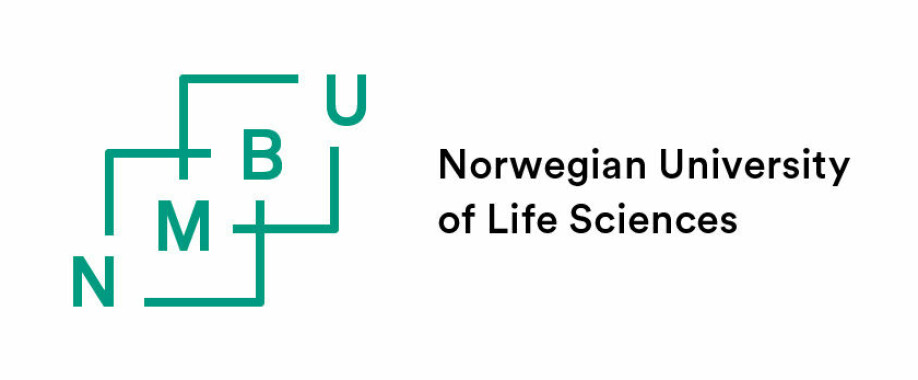Ledig stilling ved NMBU
PhD position within biochemistry in the context of infection biology
Deadline: 20.03.2020
About the position
The Protein Engineering and Proteomics (PEP) group at the
The Faculty of Chemistry, Biotechnology and Food Science (KBM) at the Norwegian University of Life Sciences (NMBU) has a vacant 3-year PhD–position related to research on the function of bacterial virulence factors. The project is funded by NMBU.

KBM is located at Ås Campus, 30 km south of Oslo, and has approximately 130 employees spread over 11 research groups, including the PEP group, which employs approximately 30 persons, with focus on fundamental and applied enzymology, enzyme discovery, microbiology, microbial ecology, bacterial virulence factors and bioprocesses technology. The bacterial pathogenesis subgroup within PEP (BactoPath) is led by Prof Gustav Vaaje-Kolstad and currently hosts one PhD student and two postdocs.
The research goal of the BactoPath subgroup is to understand the molecular mechanisms used by pathogenic bacteria to evade the host immune system. We work with both human and fish pathogens. The goal of the present PhD project is to determine the function and mechanism of selected virulence factors secreted bya human pathogenic Gram-negative bacterium. The goal will be achieved by general biochemical characterization of the virulence factors, identification of putative interaction partner(s)/substrates and elucidation of the molecular mechanisms that determine function. The project also intends to obtain a deeper understanding of the function of post translational modifications of secreted virulence factors.
The results obtained in the project will expand the knowledge of how bacteria evade the immune system and provide new targets for combating bacterial infections.
The PhD candidate will be encouraged to have a research stay (3-6 months) in the lab of a collaborator.
Main tasks
The following tasks will be performed (all methods related to the tasks below are established in our lab):
- Gene cloning and protein expression
- Protein purification
- Protein pull-down experiments (proteomics)
- Enzyme characterization (enzyme assays, chromatography and mass spectrometry)
- Genetic engineering of bacteria
- Ex vivo assays
- Write scientific papers
Qualification requirements, desired experiences, knowledge and personal qualities
Applicants must meet the conditions defined for admission to a PhD programme at NMBU. The applicant must have an academically relevant education corresponding to a five-year Norwegian degree programme, where 120 credits are at master's degree level. The applicant must have a documented strong academic background from previous studies and be able to document proficiency in both written and oral English. For more detailed information on the admission criteria please see the PhD Regulations and the relevant PhD programme description.
The applicant must document expertise and interest in the research subject.
Required Academic qualifications
- A Master of Science (MSc) degree in an area that is related to the main tasks (described above).
- Experience in protein expression, purification and characterization
- Experience in methods involving molecular biology and/or chromatography and/or mass spectrometry
Desired Academic qualifications
It is desirable that the applicant has experience/knowledge in one or more of the following topics:
- Cultivation and handling of pathogenic bacteria.
- General microbiology
- Proteomics
- Cell biology
- Immunology
We are looking for a person who is/has:
- Hard-working, ambitious and accurate
- Creative and independent
- Documented proficiency in both spoken and written English and, preferably, in a Scandinavian language
- Good social and collaborative skills.
Remuneration and information
The position is placed in government pay scale position code 1017 PhD. Fellow. PhD. Fellows are normally placed in pay grade 54 (NOK 479.600,-) on the Norwegian Government salary scale upon employment and follow ordinary meriting regulations.
Employment is conducted according to national guidelines for University and Technical College PhD scholars.
For further information, please contact:
- Professor Gustav Vaaje-Kolstad, E-mail: gustav.vaaje-kolstad@nmbu.no; phone +4767232573
general Information to applicants
Application
To apply online for this vacancy, please click on the 'Apply for this job' button above. This will route you to the University's Web Recruitment System, where you will need to register an account (if you have not already) and log in before completing the online application form.
Application deadline: 20. March 2020
Applicants invited for an interview will be asked to present verified copies of diplomas and certificates.






